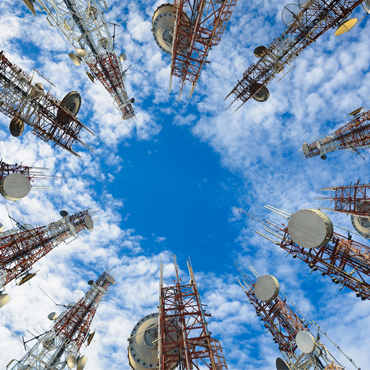AT&T, FirstNet cast doubt on rival's participation
AT&T and some public safety officials say Verizon's public safety network services claims aren't accurate.

As FirstNet contractor AT&T begins rolling out services for the national wireless broadband network for first responders, it is pushing back against rival Verizon's statements about alternate first responder offerings.
Verizon's claims to be working on interconnection with the National Public Safety Broadband Network that AT&T was contracted by FirstNet to build last spring are not true, according to AT&T.
"An interconnection agreement between FirstNet, AT&T and Verizon is currently not underway," an AT&T spokesman told FCW via email. "FirstNet is the country's only communications platform designed for all of public safety. And, while others may try to replicate what FirstNet will offer, FirstNet is the only network with spectrum dedicated in times of emergency and prepared to deliver on Congress's vision for public safety."
AT&T declined further detailed comment until after its Jan. 31 earnings report.
During the company's third quarter earnings call on Oct. 24, company CEO John Stevens said the company has invested more than $200 million in FirstNet. Under the contract, FirstNet will pay AT&T an initial $6.5 billion to build out the network in the project's first five years. After that, the company has said it could invest $43 billion in the network over the contract's 25-year span.
Since the summer, competition between FirstNet and Verizon's network plans have been simmering.
This past August, Verizon vowed to create a "core network" pulled from its national commercial 4G LTE network for first responders to use. The firm says its network covers 2.4 million square miles of the U.S. It chose not bid on the FirstNet contract because it said it didn't need the 20MHz of band 14 spectrum that came with it.
After FirstNet announced in recent weeks that all 50 states and five U.S. territories have opted into the program, Verizon reminded the states that just because they opted in didn't mean they had to commit to the plan.
Michael Maiorana, senior vice president for public sector at Verizon Enterprise Solutions, said public safety users didn't have to migrate to AT&T's network and urged them to explore all options.
Verizon's approach has rankled AT&T and a few others.
In a Jan. 9 meeting of the National Public Safety Telecommunications Counsel teleconference, Kevin McGinnis, a representative of National Association of State Emergency Medical Services Officials said Verizon's claims it has a unique public/private partnership with FirstNet and the ability to provide oversight were 'unfounded."
McGinnis also questioned Verizon's efforts to build a network comparable to FirstNet.
"Verizon has said it could build a separate core for public safety, suggesting that it could work with the [FirstNet] core. Verizon promised priority and preemption, but it did not avail itself of the opportunity to participate in the bidding… from the beginning," McGinnis said.
"The consensus of [FirstNet's Public Safety Advisory Committee] was that these claims are not provable. Public safety needs to hold these companies accountable for their claims," FirstNet's Tom Sorley, who chairs the PSAC, said during the Jan. 9 teleconference. "We need to make sure we're holding folks accountable for what they say." "We haven't had any recent meetings regarding interoperability with AT&T," Verizon spokesman John O'Malley said in a Jan. 23 email to FCW, "but we're certainly open to discussions that would lead to the best possible nationwide network for first responders -- that should be everyone's shared goal."





